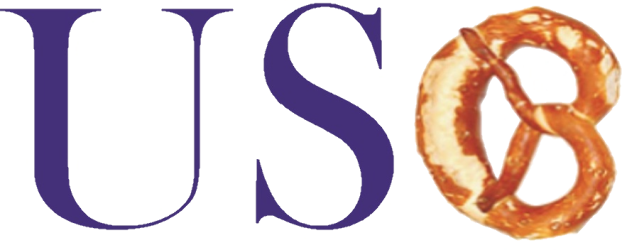Over the past ten years, programs like Tinder, Grindr, Bumble and Hinge has completely altered how we fulfill. Can electronic online dating actually really compare with interactions formed offline?
In 2016, We boarded a plane to Iceland. I happened to be on my method to an initial go out with a stranger – someone I best know from Tinder and a few Whatsapp telephone calls. 5 years early in the day, i would have now been embarrassed, frightened even. We noticed reckless, sure, nevertheless the stigma of meeting someone on the web got fallen away among my associates, and I believed the individual I became fulfilling was actually really worth the airfare. Overall, the connection lasted only half a year, but I fell crazy, practiced another country and learned some life training. All in all, no regrets.
About ten years ago, internet dating had been considered to be for folks who or else have problem satisfying men. Today, internet dating programs are norm. By 2014, Tinder claimed one billion swipes per day; while Bumble mentioned they got 26m customers and was responsible for 20,000 marriages by 2018. In line with the economic Times, in the USA, doing 75 % of heterosexual partners who met in 2019 performed very on line, while investigation by the dating site E-Harmony implies that by 2031, 50 percent of all of the UK couples could have met because of this.
The regular
Emily Witt, writer of potential Intercourse, a book that explores brand-new kinds of appreciate and relationships, started quietly making use of adult dating sites in 2011. “Back then, your utilized a pseudonym,” she recalls, “and it will be wouldn’t have been connected with your social media marketing like some apps include now.” GPS on online dating programs had been latest and generally of Grindr, no less than until the conclusion of 2011, when the heterosexual equivalent Blendr established, followed closely by Tinder in Sep 2012. “The people who formulated Tinder were planning on the school campus, in which absolutely this individual you will find everyday and you also wish means them you’re also afraid to. They created the notion of a double opt in, in which should you decide both swipe correct, you have taken down a barrier. They eliminated worries of embarrassment, and therefore altered every little thing.”
Witt recalls how innovative it believed when internet dating software “were in your mobile, that you had a photo and put their genuine name”. It sensed at the same time intrusive and reassuring that, on Tinder, their shared pals are made noticeable.
Maybe not ‘the one’, however the numerous
Witt’s book examines the recent social shift from inside the western, out of the rigid idea of finding ‘the one’. She observed how, like many women the woman years, the matrimony and youngsters she envisioned by 30 had eluded the girl. Without a doubt, based on UK census information, since 1971, the sheer number of people residing by yourself has increased by 10 per cent in addition to ordinary age of wedding has relocated from 22.6 for ladies and 24.6 for men to 30.8 and 32.7 respectively. Close patterns have already been observed in the US.
Matchmaking applications are included in this change, Witt suggests, because they supply more selections, current shared skills and refute old commitment timelines. “This tech allows you to access folk in one period whilst. It Could Be isolating experience like the sole uncoupled individual, specially when company beginning creating kids, but when you enter app secure, folks is in the same motorboat.”
Discovering brand new horizons
Some applications occur designed for the objective of assisting customers check out latest union formations, reflecting the increasing fluidity of whom and just how we date. The app Feeld roles itself for “the open-minded”, which range from “curious” to “kinky”. Cathy enthusiastic, from London, was Feeld’s people and activities supervisor, and utilizes the software really. She recognizes as pansexual and it has been in an open relationships together with her spouse for eight many years – they’ve both have different associates, separately, and along.
Feeld also programs enjoy it, claims Cathy, make it easier to put down what you’re into upfront, from climbing to threesomes, friendship to BDSM. The same goes for sex and sex; Feeld provides people significantly more than 20 gender identities and 20 sex alternatives, looking to getting an inclusive area for several. At the same time different programs bring sprung around appeal to a lot more certain communities; J-Swipe for Jewish folk, Lex for queer females and nonbinary men, Tindog for canine walkers.
Online online dating downsides
As appropriate as electronic relations are, matchmaking software can highlight a throw away community. That group can cover behind a display may also offer a shield for racism, homophobia and misogyny. Responding to the, Grindr possess established the Kindr venture, to market best behaviour.
Eager, acknowledges that, despite her ease, software have chosen to take away the love and serendipity of dating. In an age in which we can order in intercourse, and perchance like, like an Uber Eats delivery, we could getting lazy about generating real life associations. “It’s important that software remain hands-on in helping consumers build their own goal of generating authentic IRL connections,” she says. “There is nothing that can compare.” That is why, programs like Feeld, Tinder and Raya have begun to pay attention to connecting consumers at happenings, from foretells parties to celebrations, cultivating a feeling of society and reintroducing spontaneity.
So, what’s the best way to fulfill a person?
“The best way to meet up anyone,” claims Witt, “is still going down with buddies and strangers, and stay the last people during the celebration.” It would be a misnomer, she feels, to think that applications took out what’s hard about online dating. “At the termination of your day, programs are simply an effective way to meet folk, but once you’re two different people in a space, apps don’t do anything New Haven escort reviews to ease things that are difficult about online dating. How do you make the very first action? How will you decline somebody you never fancy? All That can be uncomfortable and unscripted because’s actually been.”
Thus, just how will online dating apps evolve? “In my opinion we’ll see more of exactly what we’re currently seeing,” says Witt, “understanding how to be an excellent individual on these software becomes a lot more refined and they’ll promote you to convey all of our objectives much more plainly.” She things to Bumble, in which people need communicate with men 1st, for example of just how ‘communicative permission’ has become more critical. “So most of what’s painful about matchmaking is having the expectations upset. I believe people will have sharper about just who they start to,” she concludes, “and we’re gonna read a lot more improvements around visibility.”

